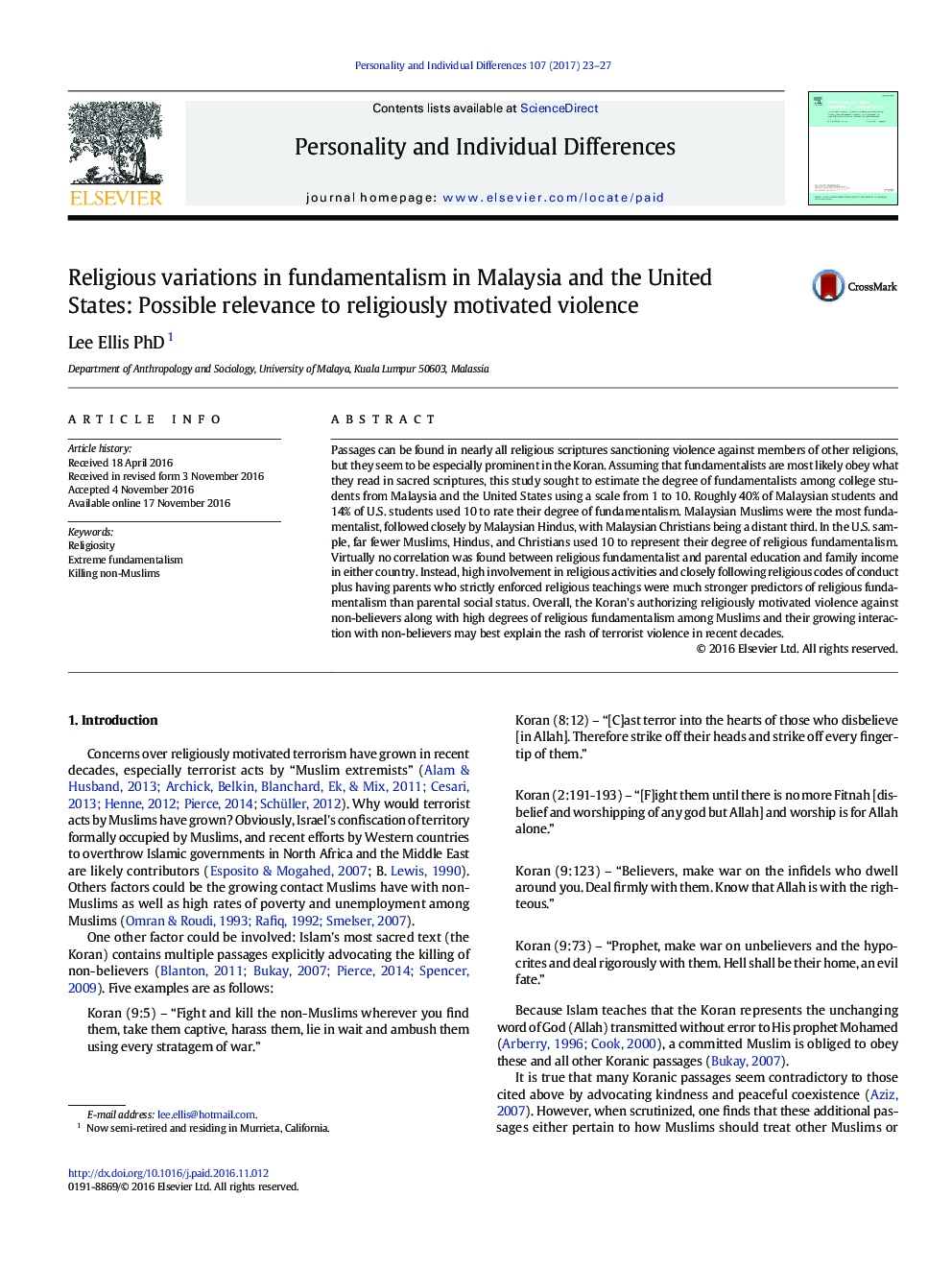| کد مقاله | کد نشریه | سال انتشار | مقاله انگلیسی | نسخه تمام متن |
|---|---|---|---|---|
| 5036134 | 1472011 | 2017 | 5 صفحه PDF | دانلود رایگان |
- Self-rated fundamentalism was assessed among college students in two countries.
- 40% of Malaysian students rated themselves as extreme fundamentalists.
- 14% of U.S. students rated themselves as extreme fundamentalists.
- Malaysian Muslims were the most fundamentalist, followed by Malaysian Hindus.
- Parental social status was minimally associated with religious fundamentalism.
Passages can be found in nearly all religious scriptures sanctioning violence against members of other religions, but they seem to be especially prominent in the Koran. Assuming that fundamentalists are most likely obey what they read in sacred scriptures, this study sought to estimate the degree of fundamentalists among college students from Malaysia and the United States using a scale from 1 to 10. Roughly 40% of Malaysian students and 14% of U.S. students used 10 to rate their degree of fundamentalism. Malaysian Muslims were the most fundamentalist, followed closely by Malaysian Hindus, with Malaysian Christians being a distant third. In the U.S. sample, far fewer Muslims, Hindus, and Christians used 10 to represent their degree of religious fundamentalism. Virtually no correlation was found between religious fundamentalist and parental education and family income in either country. Instead, high involvement in religious activities and closely following religious codes of conduct plus having parents who strictly enforced religious teachings were much stronger predictors of religious fundamentalism than parental social status. Overall, the Koran's authorizing religiously motivated violence against non-believers along with high degrees of religious fundamentalism among Muslims and their growing interaction with non-believers may best explain the rash of terrorist violence in recent decades.
Journal: Personality and Individual Differences - Volume 107, 1 March 2017, Pages 23-27
